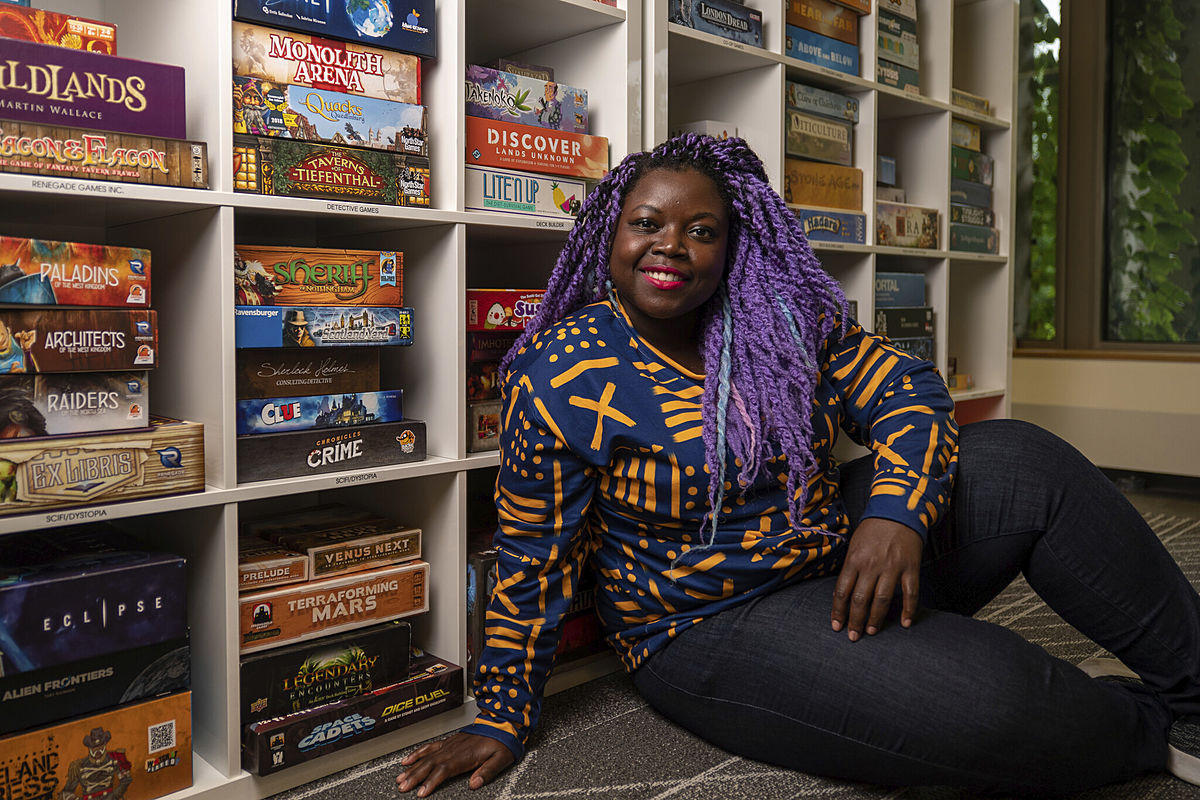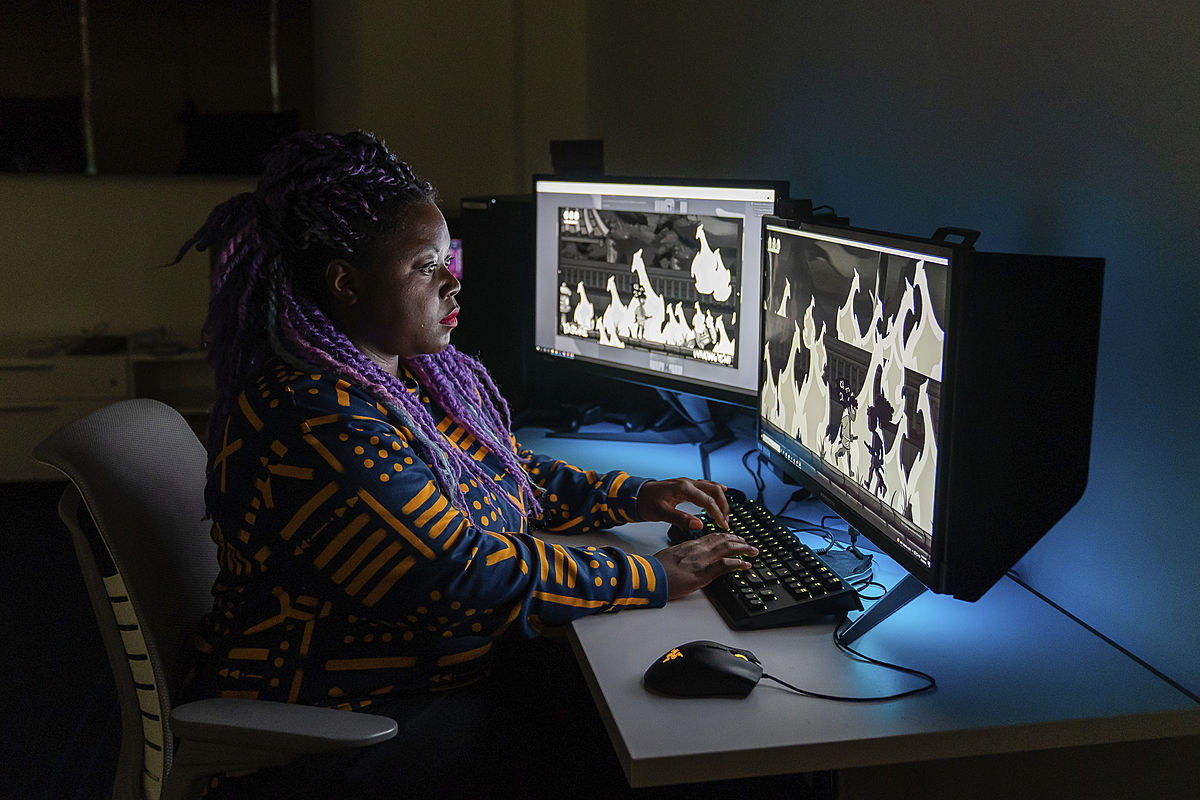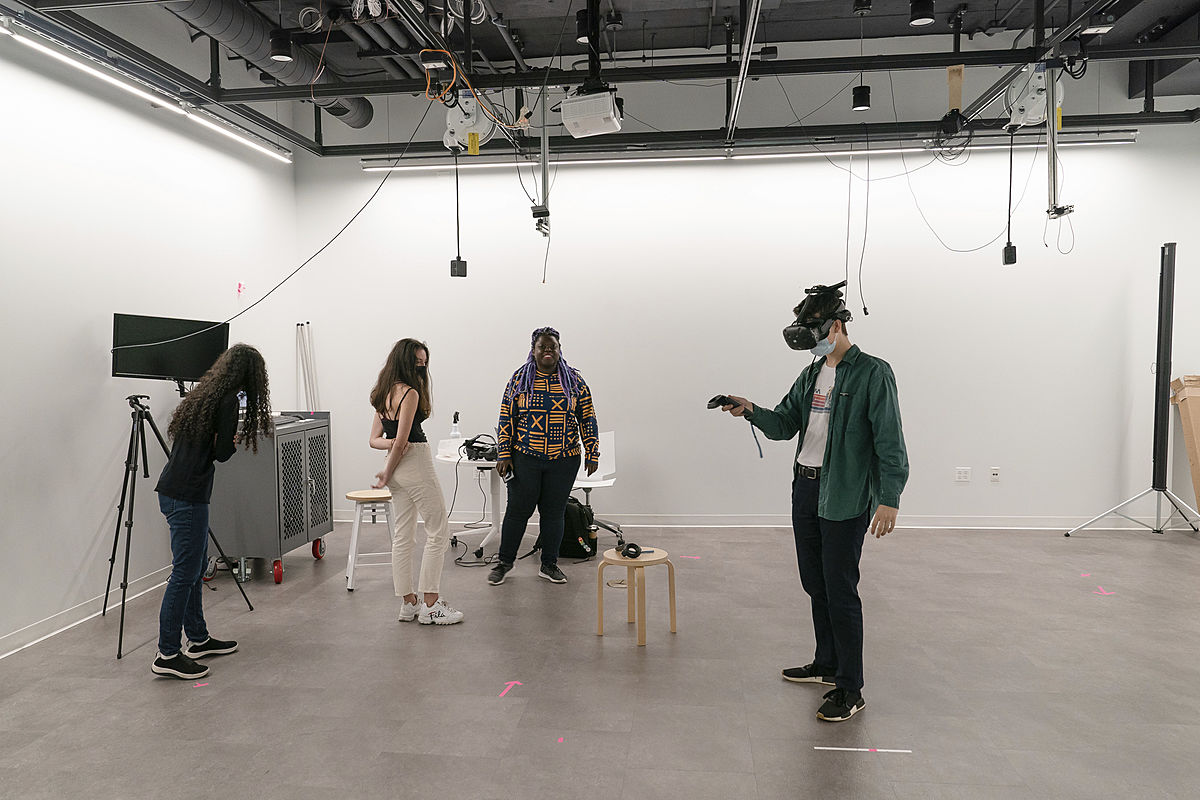Ashlyn Sparrow wants young people from Chicago’s South Side to take her job someday. As the Assistant Director of the Weston Game Lab at the University of Chicago, Sparrow is a game designer who is always eager to show young people, particularly those from marginalized communities, that they too can turn their personal interests into fulfilling careers.
“With the democratization of game engines such as Unity3D and Unreal, among others, it’s never been easier to make games before, but it’s hard to imagine yourself in these positions if you don’t know that it’s possible to have a career IN games and don’t see people who look like you are existing in this space,” Sparrow says. “I tell young people this all the time: I am here for my own obsolescence. I want to be in a space where people are like ‘yeah, I can work here, I can do this exact work, I can make games.”
Through an ongoing partnership with the University’s Office of Civic Engagement (OCE), Sparrow often hosts local Chicago Public high school student groups, giving them tours and leading workshops in the 3,800-square-foot space within the Media Arts, Data, and Design Center on the first floor of the John Crerar Library. Opening students’ minds to more nontraditional academic and career paths, Sparrow says, can make a campus setting like UChicago’s feel less intimidating.
“It’s just nice for them to enjoy the space and be on our campus and be comfortable,” she says.

Sparrow has collaborated with Shaz Rasul, OCE’s executive director of education partnerships, and his network over her 10 years at UChicago to introduce her team’s work to summer campus interns, college and career readiness program participants, and other local student groups spending time on campus. Rasul has also connected Sparrow and her team to opportunities to work with the Toyota Technical Institute and other local organizations.
“When people visit the University, they bring preconceived notions of what an academic space looks like and who gets to lead those spaces,” Rasul says. “Ashlyn gets people to rethink their preconceptions by leading one of the most creative spaces on campus.”
Sparrow says these interactions and others OCE has helped facilitate make boundaries between UChicago’s campus and neighboring communities “more permeable.” By giving South Side students agency in the lab and connecting with them over shared interests like video games and movies or even just the fact that she looks like many of them, Sparrow aims to strengthen trust and create more authentic community networks: “Just beyond the education—it’s how can we build a relationship? We’re working together to build up the pipelines and pathways to universities and careers in a way that feels culturally relevant.”

Visits typically start with a tour of the lab, demonstrations of some of its features like the popular 3D printers, a look at the lab’s “Retro Corner” that includes older games and gaming consoles, some time to explore, and, if time allows, an introductory game design workshop. Often, the lab’s nearly 30 undergraduate and graduate student employees help facilitate as well. Sparrow asks students to create and play their own card games, later bringing the group back together to reflect on some larger gaming concepts the exercise raised, such as establishing rules, goals, and what winning might look like.

These discussions additionally help the students consider the ways in which this kind of work at the intersection of science, art, and culture can echo broader themes and questions in life, Sparrow says. “It is a way to give them the language to start talking about games but then kind of using that as a launch pad,” she said. “What would it look like to think about our social structures that are clearly designed for certain people to win and other people not to win—what would it look like to think about it as a fair and equal game that we all have an opportunity to maybe win?”
It's one of many questions Sparrow encourages Game Lab visitors to explore. Games, she says, reveal a lot about their makers, their players, and the society in which they’re played. Giving young people a chance to see something fun and familiar in this new light can be eye-opening.



